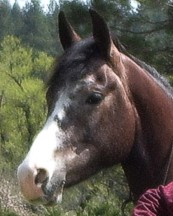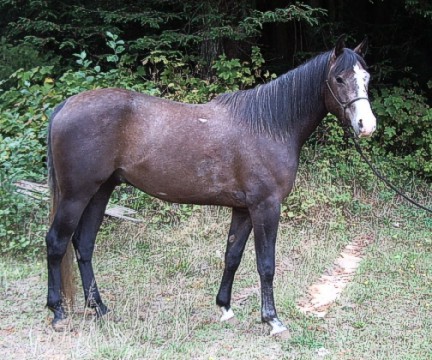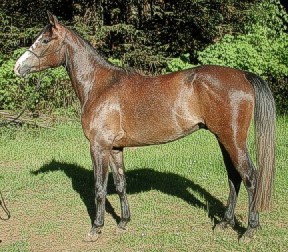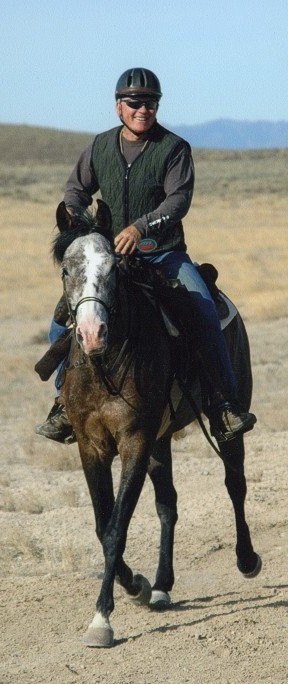|
Art Gallery (Horse Art) |
|
|
|
|
|
|
|
|
||||||||||
|
4/20/04 Twenty rides ago a new unstarted two year old colt, 3 years old in July, arrived to be started. He is between 15 &15-1 hands tall, straight legged, low hocked, lanky , about 900-925 pounds and is going to be gray. After 3-4 rides it was clear this is a really nice minded, athletically talented colt. What has he shown? The practice of "Slow Hands" began showing dividends around ride #3. His response was happening at about 3-4 on the scale from 0-10 of "Slow Hands". He remains consistent after 20 rides. He has shown extra ordinary "feel" since ride #1 which was the first clue. He walks out freely with good cadence and long, relaxed strides. He was not asked to trot until control was established of each stride of each foot at the walk. This approach is completely different from what I have used on any colt before. The first time to lope came in ride #13. The theory behind this method is simple. Establish a comfort zone for the colt at the walk. This will always be the safe area to which he can return if he gets into a storm. Move to the trot. If he builds in speed as though he is unsettled, ask him to return to the walk. Don't be afraid to let him find his own cadence as long as he is demonstrating self rate. The same process will be repeated through the trot and to the canter. I ride him with no contact because he is then able to "feel" the slightest contact. His slightest yield is rewarded by my instant release. During the whole ride, I "feel" him in the face with the rein, push with my leg, stop, back, walk, single rein supple and disengage the hind quarters all at different times. These moves are done when they seem to have no connection to any other thing at the time. Yes, it takes more time and patience resulting in a better product. This all develops the foundation of skills and the comfort zone. The goal of each ride is to develop the self confidence of the colt. Other skill development runs concurrently and as subtle as possible. Repetition, time and no pressure are very important. The introduction of skills is subtle so if execution is poor, no negative consequence is administered. Why? Simple. Just try again, again and again. All we're doing is allowing the use of repetition as the correction not a negative jerk, pull or use of a spur. Using this method will not build an area of resistance to the skill. If resistance is detected, too much emphasis is being placed upon perfection, pilot error. Remember, always reward any try. The rate at which Maverick has been executing the skill has been very rapid. He finds the right answer very quickly and with little to no resistance. Lots more to come. |
|




